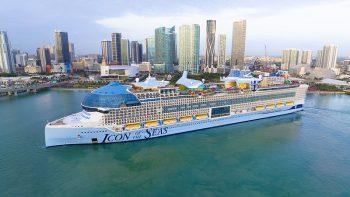
Air Asia ground crew replacing the HEPA filter of the aircraft. Photo credit: Air Asia
Transport Canada, IATA and Canadian airline officials agree that leaving the middle seat empty on an aircraft isn't necessary because other measures – such as mandatory masks, frequent handwashing, limiting food services and increased use of air filtration systems – ensure a safe flying experience.
However, an investigation by The Star found very limited peer-reviewed scientific evidence to support conclusions regarding how COVID-19 can spread on a plane and whether any of the measures help or hinder infection rates.
Responding to a request for evidence by The Star, Transport Canada cited three sources. Studies by both IATA and the Canadian Medical Association Journal found no transmission of COVID-19 in the air. A third study from the journal Travel Medicine and Infectious Disease concluded a passenger "may have become infected on the flight."
Air Canada spokesperson Peter Fitzpatrick acknowledged there are few comprehensive COVID-19 studies, but said the aviation community is drawing on a range of preliminary reports on the virus and earlier studies of other contagious diseases.
WestJet spokesperson Morgan Bell told the Star the decisions the airline makes are “data-driven or evidence-based” and pointed to three publications, including a statement by the European Centre for Disease Prevention and Control that said the risk of getting infected with COVID-19 on an aircraft “cannot be excluded but is currently considered to be low for an individual traveller.”
She also pointed to a study published after the 2002 SARS outbreak looking at the transmission of infectious diseases during commercial air travel that concluded the environmental system used on planes “seems to restrict the spread of airborne pathogens, and the perceived risk is greater than the actual risk.” That same study also concluded, however, that “commercial airlines are a suitable environment for the spread of pathogens carried by passengers or crew.”
While this limited amount of peer-reviewed research on the spread of COVID-19 in aircraft seems to suggest a low risk of transmission, epidemiologists and infectious disease experts say the lack of such research is part of the problem.
Craig Jenne, an infectious disease specialist at the University of Calgary, points out that most of the studies and reports being relied upon by airlines were done early on in the pandemic when the prevalence of the virus in the community was still extremely low.
Dr. Mark Gendreau, an expert on infectious disease transmission on commercial aircraft and an assistant professor at the Tufts School of Medicine, pointed to a recent German study suggesting that while airflow patterns in the cabin make the probability of in-flight transmission low, getting on and off the plane and bringing luggage on board could increase the risk.
Colin Furness, an infection control epidemiologist and assistant professor at U of T’s faculty of information, said not only is there a lack of research into the spread of COVID-19 on flights, there are difficulties with measuring how many people, if any, picked the virus up on an airplane.

Anna Kroupina Journalist
Anna is OJ's newest member and she joins the team as a writer/reporter. She co-writes the daily news and covers events. Although she's new to the industry, pursuing a career path in travel/tourism has been a goal since her first family road trip to the Florida Keys sparked a desire to discover the world and this exhilarating, fast-paced industry.





